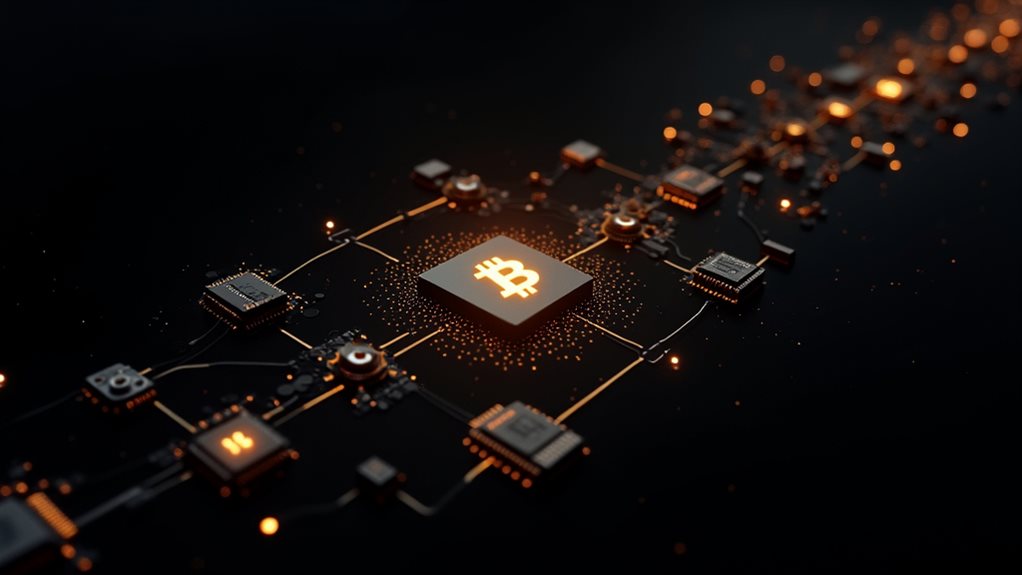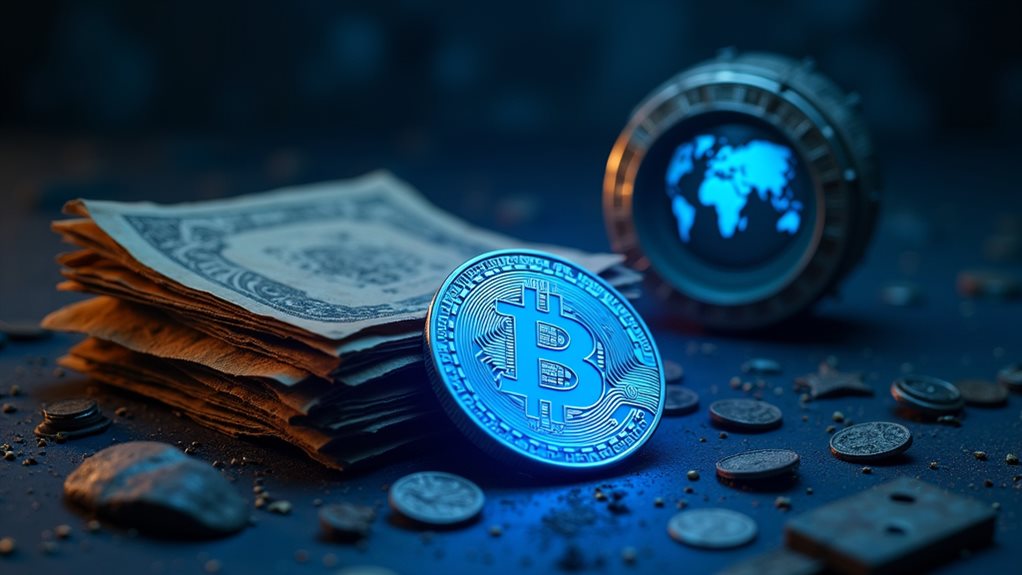Bitcoin Cash in 2025 operates with massive 32MB blocks, dwarfing Bitcoin's puny 1MB size. The network processes transactions faster than its predecessor while keeping fees around $0.125 – practically pocket change. BCH maintains Bitcoin's 21 million coin limit but handles way more transactions. Despite fewer miners, the community keeps pushing improvements in speed and security. Sure, it's not Bitcoin, but BCH is carving its own path in the crypto wilderness. The real story lies beneath these surface-level stats.

As Bitcoin Cash heads toward 2025, the cryptocurrency landscape looks drastically different from its early days. The Bitcoin hard fork that once promised to revolutionize digital payments has evolved into something quite interesting – and maybe not what everyone expected.
With its massive 32MB block size (compared to Bitcoin's measly 1MB), BCH can handle way more transactions than its famous parent. Yeah, it's still using that good old Proof of Work system, just like Bitcoin. Same 21 million coin limit too. With transaction fees averaging around $0.125 per transaction, BCH keeps costs remarkably low for users. Following in Bitcoin's footsteps as a decentralized peer-to-peer network, BCH maintains its commitment to eliminating intermediaries.
But here's where it gets juicy. By 2025, BCH is processing transactions faster than Bitcoin, and miners are actually making more money. Who would've thought? The bigger blocks are doing their job, making BCH more scalable. Sure, the price still bounces around like a kid after too much sugar – that's crypto for you. The market can't seem to make up its mind about BCH's value, probably because everyone's watching what the regulators will do next. Like other smart contracts in the DeFi space, BCH is pushing the boundaries of what's possible in digital finance.
BCH's bigger blocks are paying off – faster transactions and fatter mining profits prove this fork means business in 2025.
Let's get real about the challenges though. BCH's network security isn't exactly Fort Knox – it's got fewer miners than Bitcoin, which makes some people nervous. And adoption? Well, it's still playing catch-up with its big brother. But hey, at least those transaction fees are lower. BitPay and other payment services are on board, so that's something. The passive income potential through mining has attracted a dedicated group of supporters despite the security concerns.
The global economy is throwing its usual curveballs at the crypto market. Inflation, regulatory changes, market competition – BCH is dealing with all of it. Financial institutions are starting to take notice, which could be a game-changer. But there's always that looming threat of an economic downturn that could send everything south faster than a migrating bird.
The BCH community isn't sitting around twiddling their thumbs, though. They're constantly working on improving the blockchain, making it faster and more user-friendly. Various wallets support BCH now, making it easier for people to actually use the thing.
But let's face it – BCH is swimming in a pool full of hungry altcoins, all fighting for attention. By 2025, it's clear that Bitcoin Cash has carved out its own niche in the crypto world. It's not trying to be Bitcoin anymore – it's doing its own thing, for better or worse.
Frequently Asked Questions
How Will Bitcoin Cash Mining Rewards Change by 2025?
Bitcoin Cash mining rewards will take a significant hit in 2025. The block reward is dropping to 3.125 BCH – half of what miners were getting before at 6.25 BCH. Ouch.
This halving event is just part of BCH's programmed economics. But hey, there's a silver lining – transaction fees still add to miners' income, and the May 2025 tech upgrades might boost BCH's value.
Still, miners better have efficient setups to stay profitable.
What Security Measures Will Protect Bitcoin Cash Wallets in 2025?
Bitcoin Cash wallets in 2025 will rely heavily on advanced security protocols.
Multi-signature authentication will become standard practice, requiring multiple approvals for transactions.
Hardware wallets will dominate, keeping funds offline and safe from hackers.
Smart contracts will add automated security features.
Two-factor authentication won't just be optional – it'll be mandatory.
Some wallets will even use biometric scanning.
Because let's face it, nobody wants their BCH stolen by cyber criminals.
Can Bitcoin Cash Transactions Be Reversed or Canceled in 2025?
Nope, not happening. Bitcoin Cash transactions will remain irreversible in 2025, just like today.
Once confirmed on the blockchain, these transactions are set in stone – literally digital stone. The whole point of blockchain technology is its immutability.
No central authority, no magic undo button, no take-backs. The only way to get funds back? Hope the recipient is feeling generous enough to send them back voluntarily.
Will Bitcoin Cash Be Accepted by Major Banks in 2025?
Major banks will likely remain hesitant about Bitcoin Cash in 2025.
Sure, some crypto-friendly banks like Custodia and Metropolitan Commercial Bank might offer limited services, but the big players? They're still playing it safe.
Most banks stick to Bitcoin and Ethereum when dabbling in crypto. Regulatory uncertainty isn't helping either.
While indirect access through exchanges will continue, don't expect to see Bitcoin Cash at your local Chase branch anytime soon.
How Many Merchants Worldwide Will Support Bitcoin Cash Payments by 2025?
Based on current data showing 2,550 merchants accepting BCH, projections for 2025 remain cautiously modest.
Market analysts expect the number to potentially reach 4,000-5,000 merchants worldwide – not exactly taking over Wall Street, but steady growth nonetheless.
Regional adoption varies wildly, with stronger presence in places like the Philippines.
Still, regulatory uncertainty and fierce competition from other cryptocurrencies could throw these numbers off track.
Nothing's guaranteed in crypto, folks.









